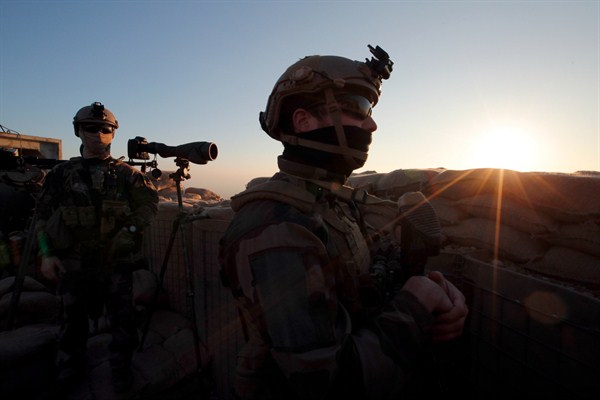The prospect of an abrupt withdrawal of U.S. forces from Syria, first announced by President Donald Trump last December, sparked fear and uncertainty for the other countries participating in the U.S.-led international coalition fighting the last remnants of the Islamic State there. Trump’s decision has affected France in particular, putting the presence of French forces in Syria, until now somewhat overlooked, in the spotlight.
France’s military operations in Syria grew out of its involvement in Iraq, where it initially joined in the fight against the Islamic State, or ISIS, at the request of the Iraqi government in September 2014. At the time, its aims were clear. First, it sought to demonstrate solidarity with its American ally by joining the U.S.-led coalition fighting the Islamic State’s self-proclaimed caliphate in Iraq. Second, it was responding to national security concerns. Very early on, Paris foresaw the risk of numerous young French people being seduced by jihadism and the need to contain that threat directly by applying pressure to the Islamic State’s sanctuary in Iraq.
When it began, France’s military campaign in Iraq, known as “Operation Chammal,” consisted of three types of operations: air support, advice and training. The air support consisted of fighter jets and bombers that were reinforced on three occasions by the French navy’s main battle group, anchored by the nuclear-powered aircraft carrier Charles de Gaulle. In March 2015, French troops also began training Iraqi security forces in Baghdad.

